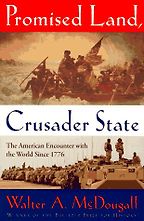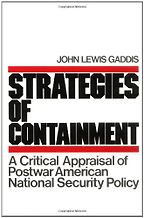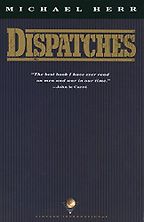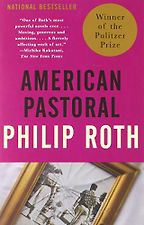There seems to me to be so much labelling in the history of American foreign policy. Neo-isolationists, American exceptionalists, benevolent hegemonists and assertive multilateralists, to name just a few. Which coinages are in currency now?
All of these labels are variations on a single distinction. Basically, there are foreign policy minimalists and foreign policy interventionists. Minimalists, otherwise known as realists or isolationists, tend to insist that America should resist intervening abroad and simply shine as a city on a hill or be an exemplar nation. Interventionists, including neoconservatives and liberal hawks, believe America should intervene abroad in defence of its direct interests and its values.
During the high point of the era of humanitarian intervention, ten or fifteen years ago, Republicans were leaning in the direction of isolation. Today, the minimalists largely reside on the left. But these traditions are two sides of the same coin and they’ve been a constant in American foreign policy. They offer a useful prism through which to examine its contours and history.
That brings us to Promised Land, Crusader State by Walter McDougall. Tell us about the book.
As the title implies, it explores the two sides of American exceptionalism. The term American exceptionalism, I should elaborate, derives from the idea that America is not just any country. It is a special country with a special mission and, in purposefully biblical terms, that mission is to redeem an otherwise sinful world.
McDougall divides American foreign policy into “Old Testament” and “New Testament” phases. Others would call the tendencies exemplar and missionary impulses respectively. His “Old Testament” presents a modest America to which foreign nations can look for example. His “New Testament” offers America as a missionary nation going abroad to lecture on the Good Book.
There is a striking continuity here. Even the most hard-nosed devotees of realpolitik (for instance Richard Nixon) are always in the end reduced to selling American foreign policy to Americans in biblical terms – referring to America as a city on the hill, a New Jerusalem. The language of American exceptionalism strikes a chord with Americans. President Obama, for one, came into office promising to be more modest in our dealings abroad. But if you listen to him towards the end, you might think you’re listening to his predecessor.
“The continuity between Bush and Obama is undeniable.”
The lanes for discourse in American foreign policy are extremely narrow and well-hewed. When presidents talk about foreign policy they enjoy far less room to manoeuvre than they might have hoped for. They always veer back onto the path of exceptionalism.
McDougall disagrees with what he calls “American meliorism”, America’s attempt to remake the world in its image. Can you make his argument and then tell me if or why you disagree?
The strength of McDougall’s book is its taxonomies, the distinction he makes between the promised land, on the one hand, and then the crusader state on the other. The weakness of his book is located in its normative sections.
McDougall, a Vietnam veteran, clearly prefers an America that, while it may have a conception of itself as a promised land, leads by example. He believes that, during the Spanish–American War, America was transformed into a crusading state, and that after 1898 we were guided by a missionary impulse that led us into disaster in World War I and then into successive catastrophes during the Cold War, one of which he experienced up close and personally. In McDougall’s rueful telling, this tradition reached its apogee in Vietnam. Hence meliorism – the tendency to believe we can ameliorate the human condition, which he views as being fixed and fallen. McDougall nicely details how this messianic impulse has led us astray. But I believe his reading of our downfall is overly programmatic.
Let’s talk about Ordinary Men, Christopher Browning’s dissection of a 500-person German police battalion that shot 38,000 Jews and transported 45,000 to the gas chambers.
Browning famously wrote, and here I’m paraphrasing, “If the men of Police Battalion 101 could become killers, what group of men could not?” The takeaway from reading this horror-filled book is that depredations on the scale of those that Browning describes can be perpetrated anywhere and by anyone.
Using first-hand accounts and official records, he describes how 500 ordinary men, Germans unfit for the draft, are given a mission to liquidate all the Jews in a village as well as an opportunity to excuse themselves. The vast majority chose to shoot innocent women and children. Over the next two years, they ended up murdering tens of thousands of people. This relates to my worldview in the sense that humanitarian interventionists are guided by the conviction that “never again” should we allow horrors of the type depicted in this book to repeat themselves. Certainly not if we have the means to prevent it and at acceptable cost.
So the fact that ordinary people can be turned into killing machines with ease, as Browning demonstrated, gives flight to the beliefs of liberal hawks like yourself?
The Holocaust looms large in American foreign policy. Unlike during World War II, when we were otherwise consumed, America now has the power to stop slow-motion slaughters. The Holocaust is always part of the debate when American humanitarian intervention comes up.
“The Holocaust is always part of the debate when American humanitarian intervention comes up.”
Some people attribute that to the over-representation of Jews in American foreign policymaking. But I think the Holocaust stands as an example for non-Jewish and Jewish Americans alike, of what should never be allowed to happen on America’s watch.
Onto a book that would definitely appear on the syllabus of any international relations course: John Lewis Gaddis’s Strategies of Containment. What does it teach us about American foreign policy during the Cold War?
Strategies of Containment is really a survey of various tactics applied in the larger strategy of containment that we relied on during the Cold War. The object of containment was to check the expansion of the Soviet Union. John Lewis Gaddis, an esteemed professor of history at Yale, brings us all the way from the origins of containment in the late 1940s through its variations: the original version of containment applied during the Truman administration; rollback during the Eisenhower administration; détente during the Nixon era; and all the way through to Ronald Reagan, who practiced a mix of rollback and détente. Despite the very different nature of these administrations they all hewed close to the strategy of containment.
Changes in American foreign policy, when they happen, tend to happen at the margins. The reason for this is because the world will permit nothing else. When there is a major crisis, as we’re seeing right now in Libya, it was clear the president did not want to intervene, and yet the fact that no one else could intervene successfully has forced him to intervene. It really shows that the world has a way of forcing America’s hand. We really tried to hand off responsibility to the Europeans. The Europeans mustered the will to intervene but they could not muster the resources. So against our own will, we’re being dragged into this because of our overwhelming military capabilities.
“Despite the very different nature of these administrations they all hewed close to the strategy of containment.”
The world really doesn’t function very well without America’s participation. Consider Jimmy Carter, one of Gaddis’s subjects. During the first couple of years of the Carter administration, he declared the Cold War over and pursued a strenuous version of détente. But in the final years of the Carter administration, he ended up squarely back in the tradition of America’s post-war presidents, taking a firm line with the Soviet Union and engaging himself very deeply with the world. He began as a liberal isolationist; he ended up boosting the defence budget and funnelling aid to anti-communists in Afghanistan and Central America. So America is not entirely in control of its fortunes abroad; when America tries to hunker down in a shell, the world always comes calling.
Some argue that the Bush administration pursued a strategy of containment towards Al-Qaeda. Do you agree? Is Obama following the same course? And how do you think it’s going?
The Bush administration tried to treat the war on terror as an analogue to the war against Soviet communism. The Bush administration was focused on rollback, a variation of containment developed by the Eisenhower administration and embraced by the Reagan administration. Rollback went beyond containing the enemy to actually seeking to roll back their advances and defeating the enemy. During the Cold War, we tended to view the Soviets as mirror images of ourselves, who wouldn’t want to exercise the Armageddon scenario. Unlike with the Soviets, policymakers tend to view terrorists as irrational actors willing to do anything, including killing themselves, to advance their cause.
I hate to beat this horse bloody, but the continuity between Bush and Obama is undeniable. Obama has launched a surge in Afghanistan, much as Bush launched a surge in Iraq. Obama escalated American involvement in Pakistan. And he’s launched a third war in Libya. There are ineluctable forces that force presidents’ hands. No matter who was president right now, we’d probably end up with similar foreign policies.
Next is Dispatches, a memoir of Michael Herr’s time reporting for Esquire from the Vietnam War. Reading this book is a scarring rite of passage for students of American entanglements.
Dispatches came out in 1977, soon after the fall of Saigon. It’s delivered in the voice of the New Journalism of the era. Herr takes us up close, on patrol with American troops. It’s so vivid that it reads like fiction. Herr’s book shows us the dark side of America’s foreign policy and the consequences of ideas hatched in air-conditioned conference rooms in Washington DC.
American foreign policymakers and foreign policy watchers, including myself, do not always fully appreciate that their ideas trickle down. Ideas are enshrined in official policy and official policy trickles down. And then the next thing you know, you have 19-year-old kids out there at the sharp end of these policies. Herr’s book is essential reading until we come up with a worthy heir for the Iraq war. It drives home how careful we must be with the ideas put on the table. It’s the most worn cliché in the world, but ideas really do have consequences, particularly in American foreign policy.
How should the personal cost to American combatants be factored into the decisions of US policymakers?
The military is an instrument of American foreign policy; it is a servant of the state. Today we have an all-volunteer army whose job it is to fight the nation’s wars. That said, the military is not a machine – it is made up of human beings, mostly people in their late teens and early twenties who join the services for a variety of reasons. There is no need to place them on a pedestal or regard them as victims, that is not the way they regard themselves. But one has to be cognisant that decisions impact and cost lives, the lives of our forces, enemy forces and civilians caught in the middle.
Given the full extent of American power, there is always a temptation to deploy force casually, without adequate reflection. Every president goes through his own cost-benefit analysis before giving the green light to the use of force. Obama, more than other presidents, certainly more than his predecessor, has made a public display of running through the costs and the benefits of the surge in Afghanistan and intervention in Libya.
“Given the full extent of American power, there is always a temptation to deploy force casually, without adequate reflection.”
Obama took a lot of hits, including from me, for agonising like Hamlet before coming to a decision in both cases. But I give him credit for carefully considering every side of the argument and there are about a dozen sides to these arguments. The president has to sign condolence letters every time a service member is killed. This practice is more than a deserved courtesy – it is a form of discipline that keeps the costs of war in front of the mind of the commander-in-chief.
Finally, what does Philip Roth’s Pulitzer Prize-winning novel, American Pastoral, have to do with American foreign policy?
It’s the obverse of Dispatches. American Pastoral shows us how events in a faraway land can wreak havoc in American living rooms. Too often, these days, Americans view war as the stuff of cruise missiles and video games. In this book, Roth recounts what the war in Vietnam wrought for a character named Swede, a star athlete with a beautiful wife and a beautiful life, until his daughter commits an act of violence to “bring the war home”. The daughter, needless to say, destroys her life. But she also destroys Swede’s life and Swede is a stand-in for America itself.
American Pastoral illustrates, much better than any work of fiction I can think of, the connection between what happens over there and what happens over here. It’s a beautifully written book and I would suggest it for anyone interested in why American foreign policy matters.
Swede’s daughter decides to blow up a post office “to bring the war home to America,” as you say. Do you think U.S. military involvement in Afghanistan and Iraq is being brought home to America?
Roth’s book shows how the conflict in Vietnam upended American society. I would often wonder, during the height of the Iraq war, why something similar wasn’t happening. When I would come home from Iraq and walk down the street, it was as if there wasn’t a war going on at all. I believe President Obama owes his triumph over Secretary of State Hillary Clinton in the [Democratic presidential] primaries of 2008 to his strong opposition to the invasion of Iraq. But I would often wonder why we weren’t seeing more reverberations in the social realm. The best explanation I could up with was that there is no draft today, so the costs of conflict aren’t felt as keenly at home. If you’re not in danger of being sent to war, you tend not to worry as much. And secondarily, dissent has fled to the Internet, where it is compartmentalised and marginalised.
But we had more than 10,000 body bags coming home a year at the height of the Vietnam War, right?
You’re absolutely right. The numbers were exponentially greater and the draft meant that it could be your neighbour or your brother.
So, how can decision makers internalise the human costs and domestic ramifications of foreign policy?
I think every president and every member of Congress is morally obliged to spend time in the war zone over which they are presiding. And they all ought to have to make pilgrimages to US military hospitals and rehabilitation centres. They ought to go and see these severely wounded young men and women. By doing these two things, policymakers are forced to confront the most direct consequences of their decisions.
The standard syllabus of American Foreign Policy 101 is unlikely to include most of the books you’ve chosen. What guided your choices?
Rather than a prescription for readers, this list is composed of books that contributed to my current worldview, which has evolved over the years. When I first started writing about foreign policy in the early ‘90s, you would’ve considered me a “liberal hawk”. My views were forged in the debate over the Balkans. I thought we had a moral imperative to act swiftly and decisively. When we finally did intervene, we put an end to the slaughter. That episode grounded my views. The counsel of Bosnia was: intervene where you can and as soon as you can.
“There is no draft today, so the costs of conflict aren’t felt as keenly at home. If you’re not in danger of being sent to war, you tend not to worry as much.”
These same views caused me to support toppling Saddam Hussein. Following the invasion, The New Republic dispatched me to Iraq. I covered the war for two years. My views on American intervention were tempered by what I saw on the ground, which was hardly the stuff of abstraction. Intellectually, one of course knows that war is a horrible thing, but that’s intellectually. The physical experience drives the point home in a way that nothing else can. So I tested the courage of my convictions in Iraq and my convictions faltered.
If you had it to do again …
I no longer believe the war was worth it – though here I should add that I resent those who make a living with their ostentation, recantations and rank-breaking. But you asked me a question and I gave you an answer.
What, in particular, altered your opinion?
I had a lot of friends killed. I covered three brigades in particular. I went back and back and back to those brigades. In the process I became good friends with a group of junior officers. One of these brigades lost about a hundred soldiers, including my public affairs officer and a young captain I admired very much.
It’s one thing to say, in an antiseptic room in Washington or from the confines of one’s office, that we ought to do x or y. It really is quite another thing to see, up close, the consequences of those decisions. The consequences can be quite gruesome. Now, the fact that war is hell doesn’t prove, ipso facto, that a given war is not worth the price paid. By that logic, spending 10 seconds on the beaches of Normandy would’ve convinced anybody that World War II was a bloody waste. But Iraq was a very close call to begin with and then no weapons of mass destruction were found, and then the sectarian slaughter began. I was deeply chastened by the experience.
“The fact that war is hell doesn’t prove, ipso facto, that a given war is not worth the price paid.”
These days, I tend to believe we should evaluate interventions on a case-by-case basis, weighing the capabilities we have, whether we can actually make a difference – which, in Libya, I think we can – and whether the costs outweigh the benefits. After absorbing the costs of one war, I really do try not to view other conflicts through the prism of ideology. But I still think America is a force for good in the world. That I regard as a statement of fact.
May 20, 2018. Updated: November 12, 2020
Five Books aims to keep its book recommendations and interviews up to date. If you are the interviewee and would like to update your choice of books (or even just what you say about them) please email us at [email protected]
Five Books interviews are expensive to produce. If you've enjoyed this interview, please support us by donating a small amount.
